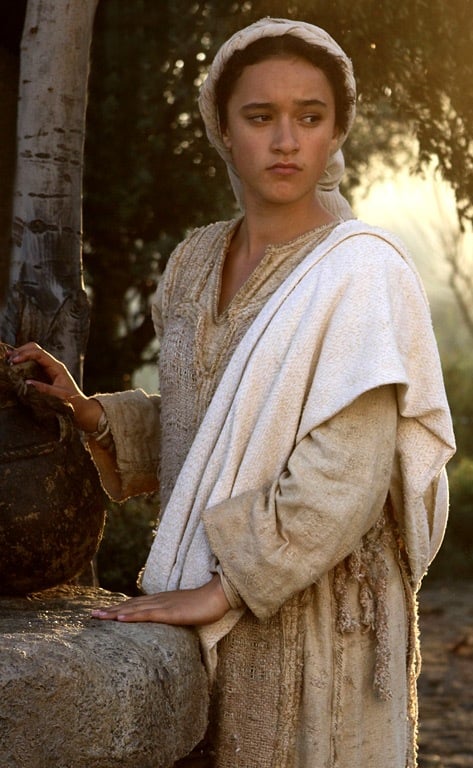Sermon preached at LifeSign, Burke UMC on 12/17/11
Text: Luke 1:26-38
“Mr. Guyton,” she said, “I’m pregnant.” Sadie was one of my best students. I had been impressed enough by her writing in my 10th grade English class that I recommended she join our school newspaper staff, which she did and continued to excel so I promoted her to an editor position and was grooming her to be our next editor-in-chief. The high school where I taught didn’t send many graduates off to college, but Sadie was unusually bright, so I had held high hopes for her future.
When she shared her news with the girls in our class, they all squealed with joy and ran over to hug and congratulate her. I can’t remember what I said, but I tried my best to smile even though I felt devastated. I wanted her to keep the baby and I wanted her to know that I would be there for her no matter what.
I wonder what it would have been like if Mary had been one of my students, if she had said one day, “I’m pregnant, Mr. Guyton, but it’s not what you think. See, this angel Gabriel came and told me that the Holy Spirit would conceive in me and I would have a son who would grow up to be the savior of the world.” What would I have said to that? Would I have said to tell Gabriel to get a job so he could pay her child support?
like if Mary had been one of my students, if she had said one day, “I’m pregnant, Mr. Guyton, but it’s not what you think. See, this angel Gabriel came and told me that the Holy Spirit would conceive in me and I would have a son who would grow up to be the savior of the world.” What would I have said to that? Would I have said to tell Gabriel to get a job so he could pay her child support?
Teenage pregnancy has become normal in our society today. In 2007, almost half of the babies born in America were delivered by unwed mothers. But in Mary’s day, it was an utter scandal to be pregnant out of wedlock. This was not just a matter of morality; it was a matter of survival. Girls were betrothed to be married almost immediately after puberty, so the prospective husband could be ensured of his wife’s virginity. If a girl lost her virginity before getting married, no husband would take her, meaning that she would remain dependent upon her parents for food and shelter until they died. Poor first-century Jewish households did not have the room or resources to support disgraced, unmarried daughters.
Imagine how devastated Mary’s parents must have felt when they first learned about their daughter’s pregnancy. And while it’s true that people believed in angels a lot more readily in Mary’s day than in ours, why would anyone believe her story? How in the world could a thirteen year old girl have the spiritual strength to carry herself with dignity and somehow trust the word of an angel against the ostracism of her entire community?
I say all this as a preface because we badly need a reality check when it comes to the identity of the mother of Jesus. Centuries of pious artwork and well-intentioned veneration have left us with a Mary who’s too pure to be human. In most paintings, Mary seems like she’s in her thirties or forties rather than early teens. Perhaps the only depiction of Mary I’ve found that actually shows her as a teenager is Keisha Castle-Hughes’ portrayal in The Nativity Story. Mary has been revered as a flawless symbol of virginity for so long that the scandal of her seemingly illegitimate teenage pregnancy has been erased.
The amazing irony is that it’s the scandal of Mary’s pregnancy that makes her story a uniquely heroic model of faithfulness for all Christians today to follow. Would you trust God if He forced something upon you that would cause your entire community to gossip about you and even potentially stone you to death? Mary trusted God in spite of scandalous circumstances, and that’s what makes her one of the most amazing human beings that has ever lived. The early Christians called her the “God-bearer” because she physically carried the Lord inside of her for nine months. And Mary became a role model not just for women but also men of how to respond to God’s call with trust and obedience.
The word obedience often gets a bad rap in our culture of democracy and individualism where questioning authority is the premise upon which our nation was founded. Obedience seems more akin to what happened in Germany in the Thirties and Forties. But Mary’s obedience is different than what we’re used to calling obedience. I’d like to highlight three things about her obedience that make her an example we can emulate today.
First of all, Mary was scared. She didn’t just smile and shake the angel’s hand exuberantly when he came to share his good news. The fact that Gabriel has to say, “Do not be afraid” makes it clear that Mary had a strong negative reaction to his initial appearance. How many of you have ever been visited by an angel before? I’d be terrified if a really bright creature with a loud voice suddenly appeared in front of me. Gabriel was not a cute five-year old boy with a white choir robe and a tinsel halo. Whatever Gabriel looked like, he made Mary afraid, just like it’s understandable for us to be afraid when God presents us with His call.
The second thing is Mary asked questions. Usually we assume that obedience means doing as you’re told without asking questions. But what Gabriel says doesn’t make any sense to Mary so she questions it: “How is this possible since I’ve never been with a man?” Gabriel’s answer includes a sign that Mary can test out for herself: her middle-aged cousin Elizabeth just got pregnant herself. Gabriel doesn’t tell Mary to go visit Elizabeth. He just reveals this information to her. She could have simply taken him at his word, but she didn’t. She packed her bags and went to pay Elizabeth a visit, which was a way bigger deal than it might seem. In Mary’s time, you didn’t just hitch a ride from Galilee to the Judean hill country on a whim, especially not a young teenage girl betrothed to be married in the most critical year of her parent’s supervision. I’m not sure how Mary convinced her parents to agree to a journey like that.
But Mary needed a second opinion. And Elizabeth prophetically confirms the word of Gabriel the moment Mary walks in the door. It’s important to name what is being modeled for us in this part of the story. Just like Mary, when we receive a call from God, it is completely appropriate to seek out a mentor like Elizabeth. This does not show a lack of faith, but an attentive faithfulness. Finding mentors we can trust to ask candid questions is critical to our discernment and obedience, since it’s often hard to distinguish between our own impulses and the prodding of the Holy Spirit.
Now, the third aspect of Mary’s obedience might take a minute to grasp, because Mary wasn’t really being asked to do anything. Gabriel came to tell Mary what God was going to do. The question for Mary to answer was how she would accept her circumstances. Would she view her pregnancy as a predicament or an honorable calling? Gabriel’s prophecy would represent a complete social disaster for a betrothed teenage girl in Mary’s time or ours. But Mary’s response to Gabriel is one of the most heroic expressions of dignity in the Bible: “I am the Lord’s servant; let it be with me according to your word.” When Mary says yes to God, she is not agreeing to do something, but to be open to what God is doing. Mary’s yes is an interpretive choice by which she receives her circumstances with honor. It is her willingness to trust that something really beautiful will happen after a very hard nine months full of scornful stares and disapproving whispers.
During the past few days, I’ve had the opportunity to talk to some people who have responded to difficult circumstances with dignity, seeing the opportunity to learn and grow in situations that I would not be able to cope with. Their patient trust and obedience to God has been a powerful witness that is teaching me hope. And it has helped me to understand why people like Mary are our world’s true heroes. They may not do anything extraordinary, because they realize that God alone can save the world. But the true heroes are those who let God make them into the wombs of His salvation. It’s not about effort; it’s about surrender.
When we say yes to God like Mary said yes, God will help us find His calling in whatever circumstances we face. Just like Mary had dignity in facing a pregnancy that probably caused a lot of people to judge her, we can carry ourselves with dignity despite whatever mental illnesses, addictions, or embarrassing memories have caused other people to make assumptions about us. There is a calling amidst our brokenness. There is a voice saying to us, “Greetings, favored one! The Lord is with you.” The question is what we will say back. Will we have the trust to say to God, “I am the Lord’s servant. Let it be with me according to Your word”? Who’s willing to say that with me? I am the Lord’s servant. Let it be with me according to Your word.
When we say that and mean it, we become God-bearers too, just like Mary was, because God is constantly spreading His seed all around us. If we are ready to open our hearts to Him, then God is ready to grow beautiful fruit within us. It’s okay to be afraid. It’s appropriate to ask lots of questions. Surrender, not effort, is how we say yes to God and bear His word before the world.















